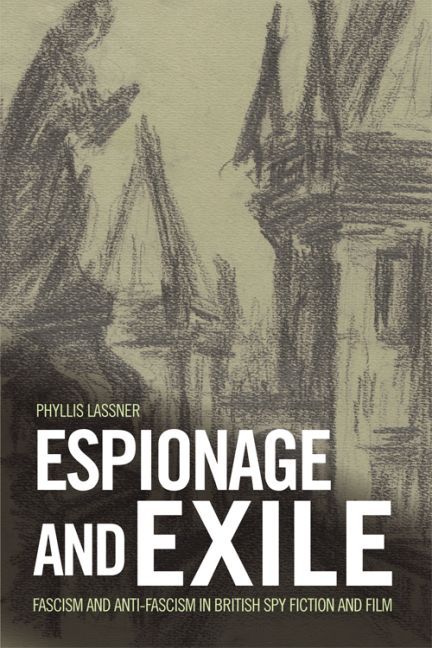Book contents
4 - John le Carré's Never-ending War of Exile
Published online by Cambridge University Press: 12 September 2017
Summary
Once upon a time spies had motives. There was capitalism and there was communism. You could choose. And all right, there was the money and the sex and the blackmail […] but in the end you either spied for a cause or against it. (le Carré, ‘Glorious Technicolor’, 1)
In John le Carré's fiction, spying for or against a cause dramatises a double-edged dystopian fantasy. Regardless to which side his spies commit themselves, capitalist or liberal democracy or Communism, the ‘cause’ and those who work to achieve its goals are sacrificed to pragmatic, often brutal means. Critics have assumed that le Carré's grim Cold War spyscapes are based on his own experience in British Secret Intelligence and therefore must represent a critique of its ethically dubious policies and practices. Instead of responding directly, he refuses to discuss his own missions or the British intelligence agencies – MI5 and MI6 – for which he worked. He insists, however, that his fictional intelligence agencies and their plots and counterplots, treacheries and opportunism are purely imaginary. Nonetheless, beginning with his first novel, Call for the Dead, all his Cold War thrillers coalesce into a dystopian warning that the sacrifices demanded by political ideology erase historical memory. To countermand that erasure, his Cold War fiction dramatises the unhealed wounds of World War II suppurating in the grave ethical impact of the Cold War. A recent documentary film reveals
[t]he disbelief he felt as a young civil servant watching the construction of the Berlin Wall [which] drove le Carré to write his first novel, A Call for the Dead (1961). ‘I saw the American and Russian tanks facing each other, waving their barrels at each other and the barbed wire being erected,’ le Carré says. ‘I think I really suffered. There was a serious sense of trauma. The barricades of the new Cold War were being built on the ashes of the old one.’ (Bailey, np)
Le Carré's assertive repetitions of ‘I’ and impassioned language do not accord with the following interpretation of his response: ‘We only see what le Carré wanted us to see: a man who has apparently dealt with the shadows of his past with good humour and determination’ (Bailey, np).
- Type
- Chapter
- Information
- Espionage and ExileFascism and Anti-Fascism in British Spy Fiction and Film, pp. 166 - 216Publisher: Edinburgh University PressPrint publication year: 2016



